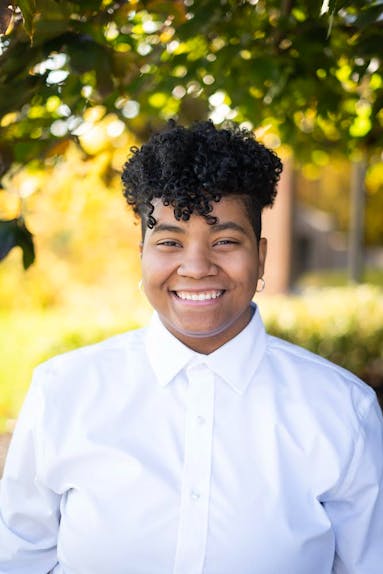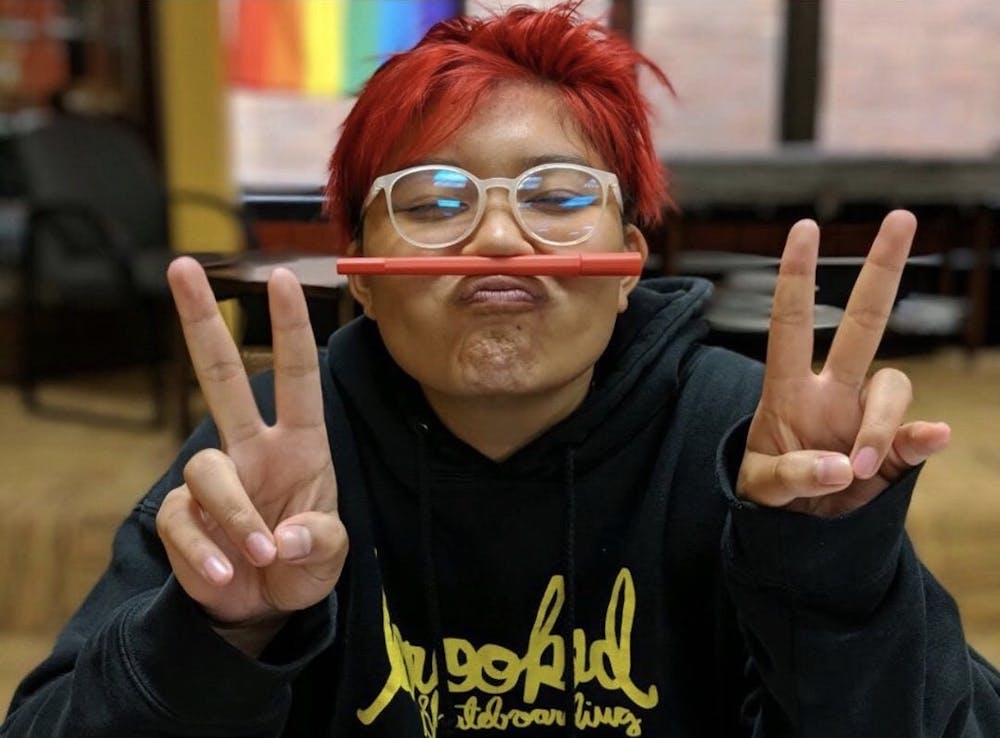Vaughn Law says they struggled to be open with their bisexuality while embracing their Hong Kong-Vietnamese culture.
Since their intersecting cultures have “similar values,” including a “don’t ask, don’t tell” approach to sexuality, they feared coming out. And today, only some family members know of their sexuality.
But since coming to UB and being away from their parents, the sophomore communication major has felt a sense of “growth.” UB has given them a place to express who they are, but has also shown Law and other students of color that being an LGBTQ person of color can set them apart from the communities they identify with. Students in the LGBTQ POC community said their intersecting identities bring different experiences, making assimilating with each community challenging at times. But students of color want other LGBTQ POC to know they aren’t alone and encourage them to come out on their own terms.
Law started using they/them pronouns and identifying as bisexual after coming to UB; before, they identified as aromantic and asexual, when a person doesn’t have romantic and sexual attraction to someone. Now, Law said they feel people often see them as either Asian or bisexual, not both.
“You’re unable to express this identity as much as you want to,” Law said. “In situations where you want to have that pride and be proud, it’s hard to merge those identities with one another sometimes.”
Law said being a person of color and being in the LGBTQ community can make someone vulnerable to more hate, as they find themselves subject to both racism and homophobia.
“Sometimes to be a person of color within this community … I think they need to be extended more resources,” Law said. “It can sometimes be so much more difficult for them to experience [the LGBTQ] community from a different nuanced identity.”
And violence isn’t an unwarranted fear. The National Coalition of Anti-Violence Program found 60% of survivors of anti-LGBTQ hate crimes and anti-HIV hate crimes were people of color.
Just like Law, Rutuja Sawant, a senior media study major, was afraid to tell her family back home in India that she’s queer.

Rutuja Sawant, senior media study major
“I think white people more than people of color probably have it easier to come out to people around them,” Sawant said. “I think as people of color growing up, our values are so much based on family first, society first and then yourself.”
Only her siblings and cousins know about her identity.
“If I had been completely open, I think it would have just been considered that I am someone who is rude, someone who doesn’t think much of their family or someone who needs help,” Sawant said.
Sawant said India has been taking steps toward accepting the LGBTQ community but still said she felt more comfortable expressing her sexuality around her American friends.
Even though it is easier for her to “be herself” in America, Sawant said she still struggles with her overlapping identities. She said it is hard to feel a sense of belonging within the American LGBTQ community because of her race, and in India she grapples with feeling like “an outsider.”
“When I go back home, and hang out with the LGBTQ community in India, I am still an outsider because I don’t live there, I live here now,” Sawant said. “I’m at a point where I’ve just kind of come to accept it’s always going to be like that. I’m never going to really fit completely anywhere.”
When Law was back home, their parents believed their identity changes were a result of their time in America. Their parents thought “it was popular” and “the white people were doing it.”
“I think since coming to college and no longer being under my parents’ hands, I was able to actually comfortably experience attraction to people without feeling guilty about it,” Law said.
Joseph Marte, a junior public health major, said he has felt out of place within the LGBTQ community because of his race. Being from the Dominican Republic, Marte said it was hard for him to come out as well.
“Because of being Latinx and also being from a country where the religion is predominantly Catholic, I have always been cautious of how I present myself in front of others,” Marte said.
Isabelle Ortiz, Intercultural and Diversity Center (IDC) director, said growing up in New York City made it easier to be open with her lesbian identity. Ortiz said she came out in 2015 and everyone appeared to accept her identity.
But when she came out to her family members who live in the Dominican Republic, she realized they weren’t as accepting.

Isabelle Ortiz, Intercultural and Diversity Center (IDC) director
“When it comes to my race and sexuality, I am privileged in many ways because I have never feared for my life like many other LGBTQ POC,” Ortiz said. “As a woman of color, coming out to my family was the hardest part for me, my family in the Dominican Republic, specifically, because of their religious beliefs. My experience going to DR after I came out publicly made me second guess a bit because being queer in DR is not as progressive as it is here in the United States.”
But life isn’t easy for LGBTQ POC in the U.S., either.
When Marte came out as gay in 2017, he began openly expressing his sexual identity through his style. But at UB, Marte said being a person of color sets him apart from other LGBTQ students. Marte said when he came to UB, he noticed there are “racially homogenous” LGBTQ “cliques” that form, making it hard for him to make friends within the community. He remembered a time students made fun of him for wearing an outfit that expressed his identity.
“I remember one day heading to work and what I assume to be a clique of white LGBTQ individuals just looked me up and down and started laughing,” Marte wrote. “That day I remember being confused and embarrassed as though I was doing something wrong and I got caught.”
Whenever Marte feels different within the community, he tries to “understand everyone comes from different backgrounds, cultures and knowledge.”
Although Law, Marte, Ortiz and Sawant each have different experiences with their race and sexuality, they all had moments where they felt like outsiders, whether it be at home or within their LGBTQ community. But they don’t feel shame for who they are and encourage other LGBTQ POC to embrace their identities, however it is best for them.
“It’s scary, not going to lie, it’s still scary for me and it’s hard, but take your time, go at your own pace, come out,” Sawant said. “Straight people don’t have to come out, why should we have to come out? But that’s something that hopefully changes in the future. But for now, I think just take your time, assess your situation, be safe and go at your own pace.”
Alexandra Moyen is a senior news editor and can be reached alexandra.moyen@ubspectrum.com and at Twitter @AlexandraMoyen
CORRECTION: A previous version of this article did not identify Rutuja Sawant as queer.

Alexandra Moyen is the senior features editor of The Spectrum.





